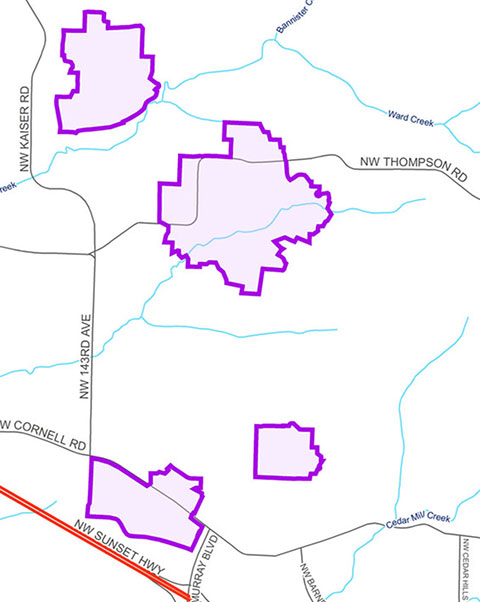ODA continues multi-year effort to eradicate Japanese beetle

by Ashley Toland, ODA

The Japanese beetle is an invasive insect that has been causing large-scale destruction to garden plants and agricultural crops in the Eastern and Midwestern United States. If this beetle establishes in Oregon, it would be a serious threat to our thriving nursery, turf grass, and specialty crop industries. An economic analysis completed by ODA concluded that farmers would spend an estimated $43 million annually to combat the Japanese beetle. Restrictions on farming exports would reduce the marketability of Oregon’s specialty crops, hurting Oregon’s economy.
Several years ago, a small outbreak was discovered in Cedar Mill. Continuing efforts to contain this pest have been succeeding with the help of the community.
From April to June, ODA applied granular larvicide treatment, Acelepryn G® to over 12,000 properties in Washington County. Treatment primarily consisted of one granular larvicide treatment applied to all grass lawns and/or ornamental planting beds in areas where beetles were detected in 2019. Acelepryn G® is a targeted larvicide that kills certain pests in their larval state in the soil. This is a “reduced risk” pesticide and is not considered to be a health risk for humans, pets, or wildlife, including pollinators, when applied according to label directions.
In areas with high beetle density, the granular treatment (Acelepryn G®) was supplemented with a foliar spray (Acelepryn®). The foliar application has the same active ingredient (chlorantraniliprole) as the granular treatment, and therefore the same minimal risks. Properties within 200 meters of a Japanese beetle trap that collected 40+ beetles in 2019 were included in the higher density treatment area (see map). The supplementary treatment was sprayed in late June to early July on non-edible ornamental trees, shrubs and plants that are known Japanese beetle hosts. The spray has no known adverse effects on beneficial and non-target organisms including earthworms and honeybees. This pesticide was selected because it is considered highly effective, but also registered as a reduced risk pesticide under the EPA.

The 2018 eradication resulted in a 56% decrease in Japanese beetle in 2019. ODA will have more information on the impact of the 2019 treatment when the Japanese beetle trap numbers are totaled in fall of this year. The impact of this year’s eradication will not be known until fall of 2021.
Without the cooperation of the residents in the treatment area this project would not be possible. Thank you to the residents of Cedar Mill for your continued support in helping eradicate this invasive and destructive pest!
For more information on the Japanese beetle eradication project visit www.JapaneseBeetlePDX.info. If you have additional questions, please do not hesitate to contact project coordinator Ashley Toland by calling 503-881-5198 or emailing: japanesebeetle@oda.state.or.us.





